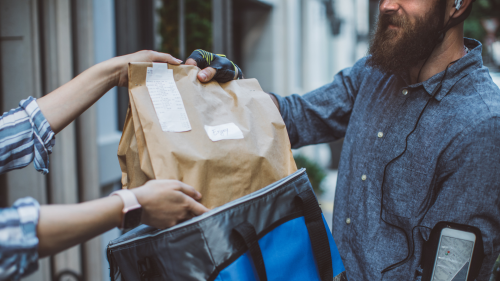Alcohol Home Delivery Plan Has Needed Safeguards
On our blog last week, we hearkened back to our Palmetto Playbook, which we wrote during the COVID lockdown. The goal of the Playbook was to take the best lessons learned from pandemic emergency declaration efforts to determine which temporary measures revealed unnecessary constraints on the free market. This was the case with barbershops and cosmetology for sure, both of which should be allowed to go mobile. Since April 2020, we have called for similar, common-sense deregulation of alcohol sales, and in late March, our own Dr. Oran Smith testified before the Senate in favor of a bill that would set rules for the delivery of alcohol.
The House has passed, and now the Senate Judiciary Committee is considering, H.4364, which would allow for delivery services, such as UberEats or Doordash, to bring alcohol straight to a consumer’s door, right along with their groceries.
H.4364 would also allow for curbside grocery pickup to include alcohol, instead of the current system that forces a customer to walk into the store to purchase alcohol. These flexible alcohol acquisition methods were temporarily allowed during the pandemic under the Governor’s State of Emergency, and that trial run clearly showed that the policy was a convenient and safe one. For example, some of those who are concerned about ready access to alcohol have suggested that convenience stores should not be allowed to sell beer cold, thereby reducing the urge to drink and drive. After all, outside of the UK, who wants warm beer? This bill as currently drafted would prevent beer from being delivered cold.
H.4364 contains a substantial number of protections. These include provisions to prevent minors from abusing the system and to prevent delivery services from enabling alcoholism. For example, when ordering alcohol for delivery, customers must prove their age with their ID, just like they would at a restaurant or a bar. When the delivery driver arrives with the order, the driver is required to refuse delivery if the recipient who submitted the ID is not present, if the recipient appears to be intoxicated, or if the recipient is underage or refuses to provide identification. Any employee delivering alcohol must be at least 21 years of age and undergo a training program from the SC Department of Alcohol and Other Drug Abuse Services. Additionally, alcohol may not be delivered to a college residence hall.
We appreciate how thoughtfully the General Assembly has crafted this legislation, working to prevent any loopholes that would encourage more consumption of alcohol, while at the same time allowing the free market to flourish. Consumers should be able to purchase alcohol via delivery. After all, delivery keeps someone with a desire for alcohol out of their vehicle, and that’s always a good thing.
With the Governor’s COVID-era executive order, we had a test run of alcohol delivery and curbside pickup. Now, it is time to embrace this pandemic lesson and pass common-sense, free enterprise legislation.







